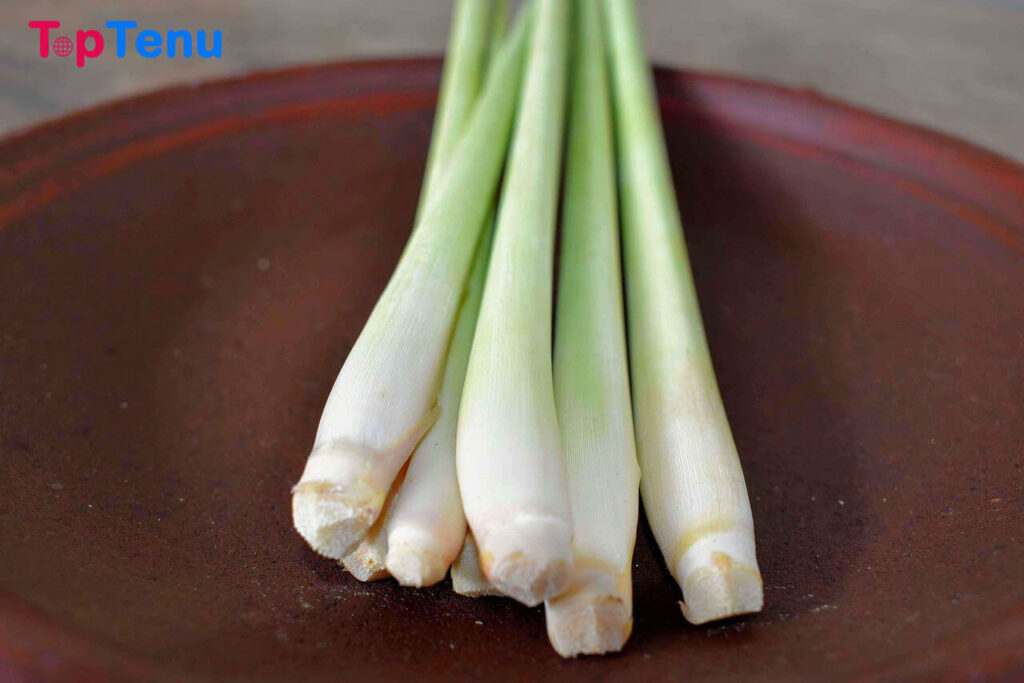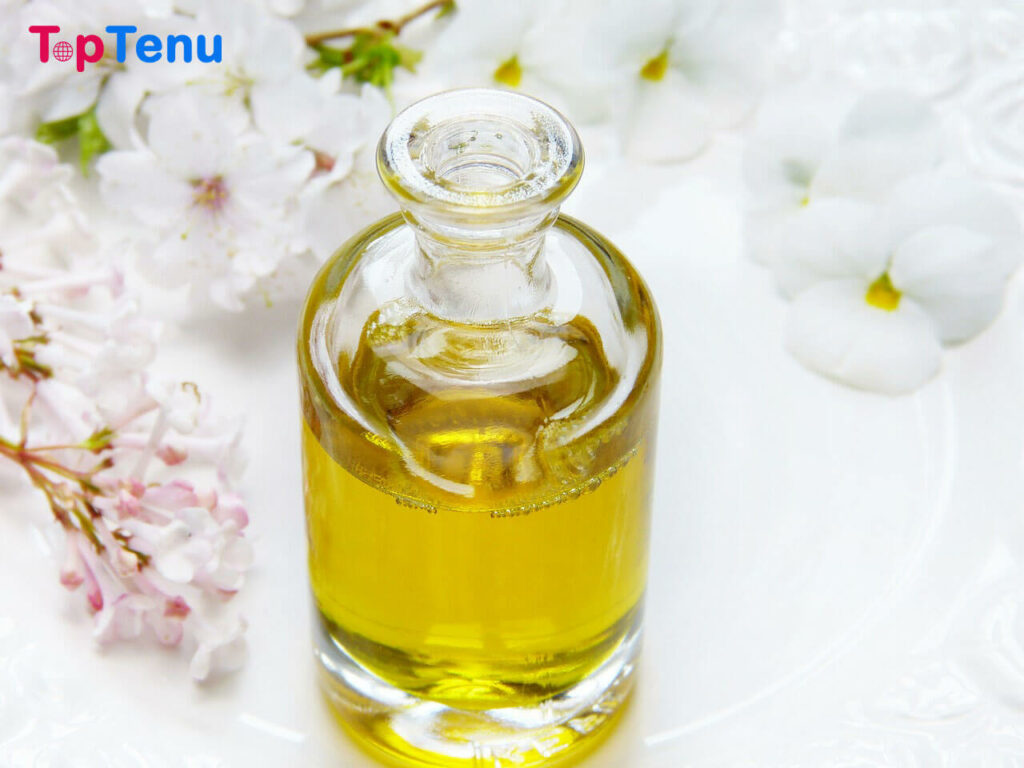Top 23 Amazing Benefits of Lemongrass

The health benefits of lemongrass include gastrointestinal disorders, insomnia, respiratory problems, fever, pain, infections, rheumatism, and edema. The protective antioxidant activity of lemongrass herb protects against antibiotic-resistant Staphylococcus aureus and helps maintain optimal cholesterol levels, cell health, nervous system, healthy skin, and immune system. It is also effective in the treatment of type 2 diabetes, cancer, and obesity, as well as aids in detoxification. It is used extensively in aromatherapy. Helps fight fatigue, anxiety and body odor.
Lemon Grass – Aroma Healer
Cymbopogon citratus, also known as lemongrass, is a medicinal herb belonging to the grass family of Poaceae. Used for its distinctive lemon taste and citrus aroma. It is native to India and is tall, perennial grass in the tropics of Asia. It is a tough plant with linear leaves that grows in thick bunches. It is initially strong and grows up to 3 meters in height.
In addition to culinary benefits, this herb provides numerous medicinal benefits and is in widespread demand on the African and American continents as well as throughout Southeast Asia for its antibacterial and antibacterial properties.
The genus Cymbopogon contains 55 species of grasses, two of which are called lemongrass. Cymbopogon citratus is famous for its culinary uses, and Cymbopogon flexuosus contains various types of myrcene and has a long shelf life, which is why it is used in perfumery.
Nutrition Facts
Lemongrass (citronella), raw
Serving Size: 100g
Nutrients, Value
- water [g] 70.58
- energy [kcal] 99
- Protein [g] 1.82
- Total lipid (fat) [g] 0.49
- Carbohydrates by difference [g] 25.31
- Calcium, calcium [mg] 65
- iron, iron [mg] 8.17
- Magnesium, Mg [mg] 60
- Phosphorus, P [mg] 101
- Potassium, K [mg] 723
- sodium, sodium [mg] 6
- Zinc, Zn [mg] 2.23
- Vitamin C, total ascorbic acid [mg] 2.6
- Thiamine [mg] 0.07
- Riboflavin [mg] 0.14
- Niacin [mg] 1.1
- Vitamin B-6 [mg] 0.08
- Folic Acid, DFE [μg] 75
- Vitamin B-12 [μg] 0
- Vitamin A, RAE [μg] 0
- Vitamin A, IU [IU] 6
- Vitamin D (D2 + D3) [μg] 0
- Vitamin D [IU] 0
- Fatty acids, total saturation [g] 0.12
- Fatty acids, total monounsaturated fatty acids [g] 0.05
- Fatty acids, total polyunsaturated fatty acids [g] 0.17
- Fatty Acids, Total Trans [g] 0
- Cholesterol [mg] 0
- Source: USDA [4]
Lemongrass Nutrition Facts
Lemongrass contains antioxidants, flavonoids, and phenolic compounds such as luteolin, glycosides, quercetin, cheemferol, elemisin, catechol, chloric acid, and caffeic acid, providing a variety of medicinal supplements. The main ingredient in this fragrant herb is lemon or citral, which has antifungal and antibacterial properties, giving it a distinct lemony flavor.
Lemongrass is a fragrant plant that contains essential nutrients that are beneficial to health. The USDA National Nutrition Database contains essential sources of vitamins such as vitamin A, vitamin B1 (thiamine), vitamin B2 (riboflavin), vitamin B3 (niacin), vitamin B5 (pantothenic acid), vitamin B6 (pyridoxine) folic acid and vitamin C. shows you are doing it. It also provides essential minerals such as potassium, calcium, magnesium, phosphorus, manganese, copper, zinc, iron, and other ingredients necessary for human health function. It does not provide harmful cholesterol or fat.
Health Benefits of Lemongrass
Let’s take a look at some details of some of the best-known health.
1. Lowers Cholesterol.
A study published in the journal Food and Chemical Toxicology in 2011 found that lemongrass has anti-hyperlipidemic and anti-hypercholesterolemic properties that maintain healthy cholesterol levels. Research has also shown that regular intake supports healthy levels of triglycerides and helps reduce LDL cholesterol in the body. It prevents lipid accumulation in the blood vessels and promotes unobstructed blood flow in the arteries, preventing heart diseases such as atherosclerosis.
2. Detoxify the Body
A 2003 study found that lemongrass helps cleanse and remove harmful toxic wastes from the body as a result of its diuretic properties. Detoxification helps in the regulation of several organs in the body, including the liver and kidneys, while helping to lower the level of uric acid. The diuretic properties of the herb increase the amount and frequency of urination, which helps maintain digestive health, removes accumulated fat and maintains a clean system.
3. Cancer Prevention
Lemongrass is effective in treating various cancers without affecting cells in a healthy way. Research To prove the anticancer activity of lemongrass, a study was conducted in the prevention of skin cancer and showed promising results. There is mainly citral in the presence of the compound.
Studies have shown that the effects of citral on cancer cells include helping to inhibit the growth of liver cancer cells at an early stage and preventing further growth of cancer cells. Another study supports the evidence for the antiproliferative effect of citral in inhibiting the growth and induction of apoptosis in human breast cancer cells.
4. Staphylococcus Aureus
According to a study conducted by the University of Northampton at the University of Northampton, UK, published in the Journal of Applied Microbiology, lemongrass essential oil has antibacterial properties. and beneficial against infections caused by Staphylococcus aureus. It spreads rapidly through body tissues and contains phenols that have the ability to heal biofilms located anywhere on the body. It interferes with the growth and communication of bacteria that help inhibit the formation of biofilms.
5. Gastrointestinal Disorders

Studies have shown that lemongrass essential oil has antibacterial and antibacterial properties that help fight infections caused by a variety of pathogens, such as Helicobacter pylori and Escherichia coli. It prevents diseases such as stomach ulcers, helps stimulate intestinal function, and improves digestion. The herb’s anti-inflammatory properties make it effective in treating constipation, ulcerative colitis, diarrhea, nausea, and abdominal pain.
6. Insomnia Treatment
Lemongrass helps to relax muscles and induce deep sleep. Studies have shown that herbal teas have sedative and hypnotic properties that help increase sleep duration.
7. Respiratory Disease
Lemongrass is widely used in Ayurvedic medicine because of its healing properties in the treatment of coughs and colds. Along with other beneficial ingredients, the vitamin C content helps relieve nasal congestion, flu and other respiratory conditions such as bronchial asthma.
8. Fever Treatment

Lemongrass is also known as ‘fever grass’ because it is an antipyretic and has beneficial effects in lowering fever. Its antipyretic and antiperspirant effect is used extensively in Ayurvedic medicine to treat fever by inducing sweating.
9. Infection Treatment

Lemongrass is used as an antiseptic and because of its antibacterial properties, it is effective in treating infections such as ringworm, inflammation, athlete’s foot, scabies, and urinary tract infections (UTIs). Studies have shown that it has a healing effect on dermatological infections such as yeast infections by inhibiting the growth of pathogens. Another study supports evidence demonstrating the efficacy of lemongrass for thyme, patchouli, and cedar oils in the treatment of various ailments, such as oral or vaginal candidiasis.
10. Caliber Reduction
Lemongrass relieves the pain and discomfort caused by headaches and migraines due to its analgesic properties. Phytonutrients are useful in the treatment of sports injuries, including muscle spasms, sprains and back pain, dislocations, internal injuries, and bruises, seen by improving blood circulation and helping relieve cramps.
11. Nervous System
Lemongrass has proven to be a nervous system tonic for the nervous system. It stimulates the mind and helps fight convulsions, nervousness, vertigo, and various neurological disorders such as Alzheimer’s and Parkinson’s. It is used in therapeutic baths to calm nerves and relieve symptoms of stress-induced anxiety and fatigue.
12. Type 2 Diabetes
Lemongrass has been proven to be beneficial in the treatment of type 2 diabetes. Studies have shown that the citral present in it helps maintain optimal insulin levels and improve the tolerance of glucose in the body.
13. Rheumatism Prevention
Lemongrass relieves the pain and discomfort caused by rheumatism. It can be applied topically for back pain and sprains and helps relieve neuralgia.
14. Amplifies Resistance.
Lemongrass helps restore essential systems that work in the body, including the digestive, respiratory, excretory and nervous systems. This helps in better absorption of nutrients and strengthens the body’s immune defense mechanisms. Lemongrass extract has beneficial effects on the inflammatory action of cytokines, signaling molecules that cells communicate with and respond to the body. Studies have shown that lemongrass has anti-inflammatory properties and its component, citral, may be responsible for its inhibitory effect on cytokine production.
15. Skin Care

Lemongrass makes an effective cleanser for oily or acne-prone skin due to its astringent and antiseptic properties. Helps to sterilize while strengthening skin tissue and toning pores. Caution should be exercised while using lemongrass products, as the undiluted application may cause skin irritation.
16. Cellular Health
Lemongrass has antioxidant properties and helps to protect body cells from free radicals caused by oxygen. It also helps to purify the blood and strengthen the spleen to dispose of damaged red blood cells. Supports the function of the thymus, which helps produce white blood cells. It helps to stimulate the regeneration of cells. The folic acid and potassium content in the stems and leaves of lemongrass aids in DNA synthesis and promotes cell division.
17. Edema Treatment
Lemongrass is effective for water retention or for the treatment of edema. It has a cleansing effect on lymphatic congestion and helps to soothe swelling.
18. Aromatherapy

Lemongrass is composed of the beneficial components of essential oils such as neroli, citronellol, myrcene, dipentene, geranylol, and methylheptenone, and has antibacterial, pesticide, and preservative properties. Lemongrass oil is used extensively in aromatherapy to help energize the body due to its therapeutic effect. The cooling effect of lemongrass oil is beneficial to the body in hot weather and promotes the recovery of both mind and spirit. This oil has natural astringent and pigmentation properties, which promotes blood circulation and stimulates skin tissue. It also helps in firming, lifting, and firming the skin.
19. Obesity
Lemongrass contains citral, which has been proven to be effective in fighting obesity. Promotes the use of stored energy to help prevent the accumulation of abdominal fat and prevent food-induced weight gain. It supports healthy metabolism and promotes the oxidation of fatty acids in the body.
20. Body Smell

Lemongrass is used as a deodorant because of its antibacterial properties that help fight unpleasant body odors. It can also be used for sanitizing or smelling smelly or sore feet.
21. Insect repellent
Lemongrass is used as a natural repellent and helps prevent insect-borne diseases such as malaria, dengue, and Lyme disease.
22. How to Cook
In addition to folk medicines, lemongrass is mainly used in Asian cuisine, especially in Vietnam, Thailand, and Malaysia. It is used to add flavor to beverages such as tea, curries, and soups, and is also used extensively in the manufacture of puddings, meat products, candies, and baked goods.
23. Other USE
Lemongrass is used in the manufacture of perfumes, deodorants, varnishes, candles, and waxes. It is also used to add fragrance to soaps and cosmetics.
Products for Pets:
Lemongrass is used in the manufacture of shampoos and beauty products for pets due to its repellent properties against lice and mites.
Precautions:
Although considered safe, topical use of lemongrass oil or ingestion of herbal teas may cause allergic reactions in some people. In case of allergy symptoms, it is recommended to stop using the essential oil and seek medical attention immediately.
Diluted or concentrated lemongrass oil can cause harmful reactions when applied directly to the body. It is recommended to keep pure essential oils out of the reach of children.
Before considering lemongrass oil for treatment, it is recommended that you consult with your health professional, especially during pregnancy, if you are thinking of becoming pregnant if you are breastfeeding, and during any ongoing medical treatment.
Lemongrass has galactagogic properties that promote the formation of milk in the breast. It is also effective in stimulating menstruation and helps relieve menstrual cramps and discomfort. It helps to calm bloating and its effects on veins. Used with caution, it can be very useful in providing medicinal products.



